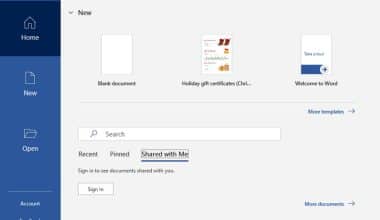Making information (books, magazines, and digital content) available to the general public is known as publishing. Keep in mind that publishing is a business, and attending one of the best colleges for publishing and editing publishing is vital.
This degree will teach you how books and magazines are created, produced, and sold, as well as teach you how to write and edit.
Editing is selecting and arranging textual, photographic, visual, auditory, or cinematic material/instrument to convey a message by a person or an entity.
Correction, condensation, organization, and a variety of other changes are all part of the editing process, intending to generate a correct, consistent, accurate, and full piece of work.
Editorial acquisitions, production, writing, editing, design, marketing, distribution, and management are all aspects of publishing. Creative writing, journalistic writing, creative nonfiction, journalism, and visual communications are just a few of the specializations available.
The job of an Editor is to revise a writer’s work, while paying attention to style, readability, and grammar. Publishers do the same things as editors but also have managerial responsibilities.
A publishing editor is a content editor who works in a variety of publishing fields. He or she can work in any publishing house, including magazines, newspapers, books, and even online publishing.
Graduates of technical schools with publishing-related degrees might work as production assistants, desktop publishers, production artists, content developers, Internet authors, technical writers, or multimedia specialists; graduates of technical schools with publishing-related degrees might work as production assistants, desktop publishers, production artists, content developers, internships, and externships.
IS PUBLISHING A GOOD CAREER?
Publishing is a famously difficult industry to break into, so you’ll have to put in a lot of effort to land a job, but it’ll be well worth it. There is no one-size-fits-all approach to a publishing career.
Students and professionals interested in publishing can pursue careers in a variety of sectors, including editing, design, marketing, and book purchasing.
Just make sure you keep up with new trends and expand your knowledge and expertise in your chosen field. The publishing sector will continue to develop as technology and audience interests expand, providing interesting job options.
Working in publishing exposes you to a flow of ideas that people are eager to share, even if it means exposing themselves to complete strangers.
Seeing the flow of ideas come in with manuscripts to consider for publication is an incredible experience. It doesn’t show up right once, but distinct currents evolve over time.
Publishing is for inquisitive people who want to understand how things function. It is a lot like gambling in that you never know when something will succeed or fail, and you have to be alright with that and make sure you’re taking a safe bet.
Sure, many businesses use formulas to fulfill public demand and financial margins, but nothing beats the genuine thrill of discovering something you never anticipated to succeed. That’s the romantic side of publishing, and it’s enough to make anyone giddy.
DEGREE NEEDED TO BECOME A BOOK EDITOR
You’ll typically need a bachelor’s degree or higher to work as a book editor. Most businesses prefer candidates with degrees in English, journalism, or communications; however, candidates with degrees in other subjects can work as book editors provided they have the appropriate skills and experience.
There are also master’s programs in editing that can lead to a profession. The technical components of writing, such as syntax, punctuation, and sentence structure, should pique the curiosity of editors.
They should also have the capacity to deal closely with authors and guide them through the publishing process. Publication firms often recruit college graduates who have outstanding written and verbal communication skills, a strong academic record, and a deep interest in book publishing. Internships or voluntary work in the publishing sector can also assist individuals to prepare for a career as a book editor.
Although just a few colleges offer publishing degrees, an education in journalism, English, or other relevant areas might help you prepare for a career in the publishing industry.
When it comes to postsecondary education, a number of universities and colleges offer undergraduate and graduate degrees in related subjects to people interested in pursuing a publishing/editing career. These degrees are;
Associate’s Degrees;
One alternative is to earn an Associate of Applied Science (AAS) in Graphic Communications or a similar media-related field.
Computer fundamentals, as well as Internet and multimedia development, may be required for this degree. Skills in pre-press, publishing and professional growth may also be highlighted.
Bachelor’s Degrees;
Bachelor of Arts (B.A. ), Bachelor of Fine Arts (BFA), and Bachelor of Science (B.S.) are among the several undergraduate degrees available in publishing (B.S.).
Some publishing degrees are available, such as a BFA in Literature, Writing, and Publishing, but they’re not common. Journalism, graphic design, English, and even marketing graduates could use their skills in the publishing industry.
Master’s Degrees;
A two-year Master of Science (MS) program in publishing typically consists of one year of classroom study and one year of thesis work in which students research and analyze a publishing industry topic. Concentrations in packaging, computer technology, and business are sometimes available in publishing graduate programs.
A Master of Professional Studies (MPS) in Publishing is another possibility. Traditional book and journal publishing, online publishing, and emerging technologies may be covered. A digital publishing practicum is occasionally available.
Check this out: Capstone Editing Textbook Grant for Undergraduates 2024
Why Study at Colleges for Publishing and Editing?
From an editorial or directorial position within a major publishing business to establishing your own on-demand digital small press, becoming a book publisher can take many various shapes.
Despite the diversity of possible career paths in book publishing, they all require prior college education in writing, business, and technology, which you can tailor to your preferences.
Journalism, English, and Literature
A solid foundation in English, literature, and journalism is required for a career in book publishing, especially if you intend to work as an editor for a big publishing house or examine submissions for your own independent label.
You can also major or minor in English to demonstrate your great reading and editing abilities as well as your ability to communicate effectively via the written word.
While some colleges offer integrated bachelor’s degrees in writing and publishing, others provide a publishing focus as part of their English degree programs.
Marketing, Sales, and Public Relations
If you want to work in a major publishing house’s sales, publicity, marketing, or outreach department, or if you want to promote your small or independent press, you need take business courses like marketing and public relations in addition to your literary studies.
These courses can serve as excellent preparation for learning how to promote new authors and imprints.
If you plan to run your own independent newspaper, a minor in business administration could be beneficial because it will complement your editing knowledge with business management skills.
Technology
Strong computer abilities are needed for a job in book publishing. This is especially important if you plan to manage an independent or web-based publishing imprint, but it is equally necessary for individuals looking for jobs at major publishing organizations.
Because of the growing popularity of digital media, such as e-books, and computer-based software for editing, layout, and design, most, if not all, large publishing houses now have a strong online presence and publication base, so early exposure to such software and capabilities is critical.
Undergraduate degree programs in electronic publishing are available at several universities, with courses such as business computer applications and digital imaging.
Work Experience or Internship
Local internships, such as working for your university’s newspaper or journal publications, or an internship with a national or international magazine or book publisher, can also help you gain qualifications and experience in all elements of the publishing process.
Internships can also provide you with vital insight into the career hierarchy of large publishing organizations, where you can spend years working your way up the professional ladder toward the aim of becoming a director.
Although such credentials are not required for development, you can enhance your educational credentials by getting a graduate degree or certificate in publishing.
Which Body Accredits Colleges for Publishing and Editing Programs?
Both the US Department of Education and the Council for Higher Education Accreditation (CHEA), a non-profit organization, recognize legitimate accrediting bodies for higher education institutions and provide standards, resources, and statistics on these accreditors.
The following organizations are recognized as institutional accreditors by them:
- Accrediting Commission of Career Schools and Colleges.
- Accrediting Council for Continuing Education and Training.
The regional Accreditation bodies are;
- The Accrediting Commission for Community and Junior Colleges (ACCJC) is a body that accredits community and junior colleges.
- Western Association of Schools and Colleges.
- Higher Learning Commission (HLC)
- Middle States Commission on Higher Education (MSCHE)
- New England Commission of Higher Education (NECHE)
- Northwest Commission on Colleges and Universities (NWCCU)
How Much Does it Cost to Enroll in a College for Publishing and Editing?
Aside from universities and colleges, private vocational-style schools exist that focus on teaching the technical skills editors require rather than digging too deeply into other aspects. Depending on the program and the student’s schedule, coursework might last anywhere from a few weeks to many months.
A bachelor’s degree from a college or university costs between $35,000 and $116,000 on average (based on tuition and fees over four years; not including room and board, books and supplies, transportation, and other costs).
A master’s degree costs between $7,600 to $26,000 a year on average (tuition and fees only).
See also: Top 20 Book Publishing Companies in Chicago | 2024
HOW LONG IT TAKES TO BECOME A PUBLISHER / EDITOR
Editors often complete a four-year college program to obtain a bachelor’s degree. Those who pursue a graduate-level editing or publishing degree typically extend their educational path by two years.
Prospective editors who want to work for a publication or publishing company are frequently required to work in an entry-level position before being hired as an editor.
Self-employed freelance editors can start looking for clients at any time; but, building a portfolio that can attract larger companies will take time.
What are the Requirements for Publishing and Editing Programs?
The requirements for a program differ from school to school; using the 10 Best Colleges For Publishing and Editing and their programs as references, the following are requirements based on the schools;
1. New York University:
During the admissions assessment process, we carefully consider each component of your application to determine your capacity to benefit from and contribute to the School’s dynamic learning environment and rigorous curriculum.
Documents Required;
- Statement of purpose
- Resume
- Two Recommendation Letters
- Tests that are standardized (If required by Admissions team)
- Transcripts from all institutions where college credit was earned are required.
Language Proficiency;
For applicants who did not complete an undergraduate degree in the United States or in a nation where English is not the primary language, TOEFL scores are necessary. On the Internet-based test, successful candidates must achieve a minimum score of 100.
A minimum overall band score of 7 is suggested for the IELTS. Because several variables influence the admissions decision, NYUSPS does not bar applicants with lower TOEFL/IELTS scores from applying.
Pearson Versant English Placement Test (VEPT);
If an overseas applicant does not meet the above-mentioned minimal scores, they must take the VEPT, a 50-minute online test that assesses English language skills.
2. Emerson College:
US APPLICANTS:
The following credentials must be submitted by all applicants. GRE or GMAT is not required. Unofficial transcripts will serve for application screening and can be uploaded straight to your application prior to submission.
Prior to matriculation, all former schools and universities must send official, signed transcripts to Emerson College. Emerson does not require the transcript to be supplied if it is for fewer than 8 credits. Degrees earned outside of the United States will be evaluated.
Before matriculation, send official, signed transcripts to the following address:
120 Boylston Street,
Boston, MA 02116
Emerson College Graduate Admission
NOTE: For enrollment, official transcripts with evidence of graduation are necessary. Official transcripts from your undergraduate universities must be delivered directly to the above address.
INTERNATIONAL APPLICANTS:
The credentials and additional actions required of overseas applicants are listed below.
Transcripts;
A third party must evaluate all transcripts from outside the United States. A course-by-course appraisal, GPA, and degree equivalence should all be included in your review. Some applications may be evaluated before the official evaluation is received on a case-by-case basis.
Proficiency in English Language;
Applicants whose first language is not English must submit official TOEFL, IELTS, Duolingo, or Pearson test scores as proof of English ability.
Scores in the following ranges are typical of successful applicants:
- 95–115 on the TOEFL
- 6.5–7.5 on the IELTS
- 115–135 points on Duolingo
- 65–80, according to Pearson
Scores will be evaluated on an individual basis, and additional submissions to demonstrate English competence may be required. Students who are not required to show proof of English proficiency are those who are English native speaker.
Note: For approval of an English proficiency test waiver, supporting documents may be required. Who have a bachelor’s or master’s degree from an institution where English was the language of instruction or the institution is located in a country where English is the native language (the U.S. and its territories, the United Kingdom – its territories, Canada, New Zealand, and Australia).
TOEFL code for Emerson College is 3367.
BOTH ARE REQUIRED TO PRESENT
Recommendation Letters;
Three letters of recommendation are required from people who are best equipped to evaluate academic and professional qualifications, as well as motivations and ambitions.
Direct submission through the application site is encouraged because it enables the most efficient processing of your application. Direct electronic submissions from the applicant will be disregarded.
Essay;
This program has one compulsory essay, which you can submit online with your application, 2–4 pages of double-spaced text (500–1,000 words).
Sample of Creativity Required;
Applicants must submit a writing sample or portfolio demonstrating expertise in their chosen field(s). Non-fiction prose examples should be no more than 5 pages long, double spaced. This could be previously published or unpublished content.
Academic articles should not be included in the sample; work done for students or online publications should be included.
Portfolios should be no more than 5 pages long, plus a cover page outlining the applicant’s role in the work displayed. Editing work, design and layout, and social media content and strategy are all examples of portfolio items.
3. George Washington University:
Transcripts are required from all schools and universities attended, regardless of whether credit was earned, the program was finished, or the credit appeared on another transcript as transfer credit.
You should attach unofficial transcripts from all schools and universities you’ve attended to your online application. Only those who have been offered admission must submit official transcripts.
Official transcript evaluations from an accredited independent evaluating organization are required for transcripts from colleges outside the United States.
Request a thorough evaluation that includes all course titles, credit hours, grade-point average (GPA), degree equivalent in the United States, and degree conferral date.
State your motivation for pursuing graduate education in this discipline, as well as your academic goals, research interests, and career aspirations, in a 250-500 word essay.
Also, provide any relevant qualifications, such as college, professional, and community activities, and any other significant achievements not already listed on the application form.
4. Pace University – New York;
If postsecondary education was completed in the United States, applicants to Pace University graduate degree and certificate programs must have a bachelor’s degree from an approved college or university.
Applicants who are currently in their senior year at an undergraduate university are eligible to apply, however, acceptance is based on the submission of a final transcript demonstrating all senior year grades as well as the attainment of a bachelor’s degree.
Applicants who studied at universities outside the United States must have a bachelor’s degree that is comparable to a bachelor’s degree in the United States.
Individuals interested in learning how to become a book editor or another type of editor, such as a newspaper editor, should look into the normal criteria for these occupations, which include a bachelor’s degree.
Explore How To Start A Publishing Company | Easy Step By Step Guide
5. The New School:
Applicants from all walks of life, from recent college grads to graduate students, working professionals to career changers, are welcome to apply to our programs. Each application is thoroughly examined. No GRE or GMAT results are necessary for admission to any of our graduate programs.
Domestic candidates in the United States and overseas transfer applicants must pay a $50 application fee. Application costs are non-refundable and must be paid through the online application.
The New School waives application fees for students who meet the criteria outlined in our university’s Application Fee Waivers section.
Please explain how your academic and intellectual interests, growth, and accomplishments influenced your decision to pursue graduate studies.
Include a thoughtful description of your tentative course of study or investigation at The New School for Social Research, the research issues you want to pursue, and what you aspire or expect to accomplish after you finish the degree (500-750-word limit, three pages).
Submit a one- to two-page résumé/curriculum vitae that includes dates and positions held, as well as your academic qualifications, relevant work experience, published writing, volunteer/community work.
In addition is a professional networking, public speaking, or any other necessary experiences that may be related to your field of study. Please include any additional language or computer abilities you may have.
It is necessary to provide two letters of recommendation. Recommenders are required to submit their recommendations via the internet. The online application includes instructions. In the Academic History portion of the online application, applicants must provide an unofficial transcript, mark sheet, or academic record for each institution (even if they did not get a degree).
A key, a legend, or the back copy of the transcript must be included with every transcript upload. An English translation must accompany transcripts in languages that are not English.
Non-US records must include grades or marks and a copy of the diploma if the degree has been given. Check to see if your name is on the transcript or record. Clear and readable scans are required.
Prior to enrollment, applicants who have been accepted will be asked to present official transcripts and proof of degree conferral.
All official transcripts from their whole academic history must be submitted by accepted applicants. This criteria is not met by transcripts uploaded with the online application.
Transfer Credit for Students with International Credentials;
Graduate applicants who attended postsecondary institutions outside of the United States and are seeking transfer credit must have their transcripts evaluated by World Education Services (WES), Education Credential Evaluators (ECE), or the National Association of Credit Evaluation Services (NACES). For each transcript, a course-by-course review is required.
How to Send Transcripts in an Electronic Format
Only the following vendors have been approved by The New School to provide electronic transcripts:
- National Student Clearinghouse
- Parchment of Exchange
- Credentials eScrip-safe
Electronic transcripts provided directly from students or school offices are not accepted. Instead of a research paper, students interested in the MA program in Creative Publishing and Critical Journalism are urged to submit a meaningful article(s) or blog(s).
A term paper from a prior semester, an undergraduate or graduate thesis, or a journal article published in a peer-reviewed publication can all be used as examples.
Applicants who do not have any past work examples can compose an academic paper specifically for the application. The sample must be the applicant’s original work; co-authored works will not be approved.
Applicants for MA or certificate programs should provide a sample of 10-20 pages, however bigger examples will be considered. Applicants for direct admission to a PhD program should present longer and more sophisticated samples.
The online method allows you to upload up to 48 pages. Please keep in mind that the Admission Committee has limited time to read each application.
Language Scores
Valid TOEFL, IELTS, PTE, or DET scores are required for all applicants whose first language is not English. The following are the minimum requirements:
- 100 – TOEFL
- 7.0 – IELTS
- 68 – PTE
- 120 – DET
2501 is the TOEFL institution code.
For applicants who have received a four-year degree from a U.S. college/university or from a university where English is the predominant language of instruction, the New School does not require TOEFL, IELTS, PTE, or DET scores (minimum of three years attendance).
The Office of Admission may request you to submit an English Language Proficiency test score after examining your application in order to evaluate your candidacy.
Test results from previous two years are accepted. You must repeat the test if your results are older.
6. Belmont University:
Complete the Degree Seeking Application in its entirety and pay the $50 non-refundable application fee. Request that official high school transcripts be delivered directly to the Office of Admissions.
A transcript doesn’t need to be marked “Issued to Student” in order for it to be considered official. Electronic copies from Parchment, Clearinghouse, Naviance, or SCOIR are accepted (if your school participates).
Alternatively, you can have an official physical copy addressed to our offices at:
Office of Admissions
1900 Belmont Blvd.
Nashville, TN 37212
When filling out their admissions application, students should indicate whether or not they want their test scores taken into account. Please request that official ACT or SAT-1 score reports be delivered directly to Belmont from the testing agency if you desire to report your test scores.
Test scores will likewise be considered official if submitted on an official high school transcript. Belmont does not assess the Writing component of the ACT or SAT for admission or scholarship purposes, but does consider the super-score.
The ACT code for Belmont is 3946.
The SAT code for Belmont is 1058.
Email the completed School Counselor Recommendation (or School Report Form if using the Common Application) to the appropriate person in your school counseling office, who should then send it directly to Belmont.
In place of the Counselor’s Recommendation, homeschooled students should submit one Personal Recommendation letter from someone other than a family member.
7. Portland State University:
To apply to Portland State University’s graduate program in Book Publishing, you must submit an electronic application through the Office of Graduate Studies. This link will take you to step by step through the application procedure.
A non-refundable application fee of $65 will be requested. A limited number of application fee waivers are available from the English Department, and they will be given out on a first-come, first-served basis.
Before you finish your application, you’ll need to gather the following supplementary materials:
Personal Statement:
This is a short (3–5 double-spaced pages) opportunity for you to describe how your background and experiences qualify you as a strong prospective student for the graduate program in Book Publishing, to explain why you are interested in the program, and to state your goals and objectives for your degree.
Sample of Writing:
This is a collection of 15–30 pages of writing that illustrates your ability to work in the publishing industry. Previously published material is acceptable, and your sample can include various pieces as long as the total number of pages does not exceed the page limit.
It doesn’t matter if your sample is professional, academic, or artistic in character (or a mixture of the three). Indeed, as a potential student for the graduate program in Book Publishing, a variety of materials is typically the most effective way to demonstrate your strengths.
Please attach a short cover letter describing your position in these projects. It’s very crucial with editing samples that we can see the editing you’ve done; one approach to do this is to submit both pre- and post-editing versions, a document with your copyediting marks scribbled on it, and a document with track changes.
This writing sample, like all other application materials, should be provided digitally through the online application system; however if paper copies of any documents are required as part of the writing sample.
Transcripts:
Unofficial transcripts from each post-secondary institution attended should be submitted. These unofficial transcripts could be scans of your official transcripts or printouts of your academic record from your institution’s Registrar’s website.
If you are accepted into the program and decide to enroll, you must first submit official transcripts to the Office of Graduate Studies before registering for classes for the first term.
Recommendation Letters:
These should be letters of glowing recommendation from professional or academic sources who can witness to your abilities in the field of publishing.
It’s crucial to note, however, that these abilities can be defined narrowly (e.g., editing, marketing, and design) or generally (e.g., computer programming) (e.g. work ethic, attention to detail). These letters are collected and submitted via the internet.
INTERNATIONAL APPLICANTS
Any applicant whose native language is not English and who has not earned a baccalaureate, master’s, or doctoral degree from a regionally accredited U.S. institution or an equivalently accredited non-U.S.
Institution with instruction exclusively in English must score at least 600 on the TOEFL (100 on the internet-based test or 250 on the computer-based test). The International English Language Testing System (IELTS) exam can be used in place of the TOEFL; a score of 7.5 is required.
Admission to the graduate program in Book Publishing does not require GRE results. You’ll see that there are two degree options available in the graduate program in Book Publishing. M.A. or M.S. degrees are available to graduates.
Students must complete a foreign language requirement in order to get an M.A. However, this need for a foreign language may be completed by prior language study at the undergraduate level.
The foreign language requirement is waived for students obtaining an M.S. An M.A./M.S. in Book Publishing is the official degree.
8. Minnesota State University, Moorhead:
- What is required is either a high school diploma or a GED.
- A cumulative GPA of at least 3.0 is required (on a 4.0 scale) OR
- Earn a spot in the top half of your high school class OR
- Get an ACT composite score of 21 or higher (SAT score equivalent: 1060)
To apply to MSUM, you do not need to take the ACT/SAT as long as you complete the other prerequisites. Students may, however, take/retake the ACT/SAT in order to be considered for some of our academic scholarships.
Your ACT/SAT scores can be sent to MSUM.
2134 is the ACT Institution Code.
6678 is the SAT Institution Code.
9. Susquehanna University:
Fill out the Susquehanna Success Application or the Common Application for First-Year Students.
Official high school transcript (a copy)
Official transcripts must be submitted through your online application, and your high school guidance counselor will be notified. You must submit your senior grades as soon as they become available.
School Report with Recommendation from Counselor
Make sure to include your high school guidance counselor’s email address so that she or he is aware when you have completed your online application and are ready to submit your School Report Form.
SAT/ACT Scores (optional)
Applicants can choose to submit their SAT or ACT exam scores (or both) or opt for our test-optional plan and apply without submitting scores.
This preference can be indicated on the Susquehanna Success or Common Application. Because you are much more than your SAT or ACT results, Susquehanna uses a holistic evaluation approach to evaluate your application for admission.
Susquehanna accepts official SAT/ACT scores from the testing agency or on your official high school transcript to be evaluated for admission, your test scores will be utilized in the decision-making process if you self-report them on your application.
We don’t mind whatever test scores you provide; each one is equally important to us. If you’re not sure which test is right for you, talk to your high school counselor.
The College Board code for Susquehanna is 2820, and the ACT number is 3720. Students who choose to apply to Susquehanna must submit certified test scores in order for their scores to be considered.
Additional Materials – Optional
Letters of recommendation from high school instructors are welcome to be reviewed.
* Submission of a portfolio/auditions
The department will contact you about submitting a portfolio if you are interested in studying graphic design, art, or creative writing.
10. Hastings College:
All applicants must apply online and pay a non-refundable application cost of $90 CDN (students with Canadian transcripts) or $125 CDN (students with international transcripts) by credit card (MasterCard or Visa).
– In addition to completing the online application form, applicants must upload the following items to the online system.
– A statement of goals and objectives (2–3 pages) that highlights why you wish to enroll in the program.
– Unofficial transcripts from all colleges and universities attended. Official transcripts may take longer than the application deadline to arrive.
– A brief explanation of the prerequisite knowledge. Explain how you met the entry-level requirements in accounting and marketing, copy editing and proofreading, publishing knowledge, and computer abilities.
– Three referees; as part of the online application process, applicants will be expected to give the names and contact information for three references. An academic referee should be included.
– Your curriculum vitae (CV) or résumé.
– Portfolio
Upload examples of your work into a brief portfolio that highlights the talents and qualities you can contribute to the program to the online application.
As a Second Language English (ESL) is a language that is taught to people; applicants who do not speak English as a first language must provide TOEFL (minimum score 570 or computer-based 230) and TWE results (minimum score 5).
In place of the TOEFL and TWE, an International English Language Testing System (IELTS) result (minimum band score 7) may be provided. Computer Skills Candidates should be familiar with publishing software (Adobe CC).
10 BEST COLLEGE’S FOR PUBLISHING / EDITING
Students should think about a few things before pursuing a publishing-related curriculum, such as:
- Students should enroll in a program that offers courses in their chosen field.
- When picking a school, students should think about hands-on experience, internships, and other work-study options.
- Another factor to consider is the institution’s location; colleges in or near major publishing hubs, such as New York City, may provide greater opportunities for practical study and internships.
- An academic advisory board can help students get jobs and give networking opportunities with authors, editors, and publishing executives.
Below are the 10 best College’s for Publishing / Editing;
- New York University
- Emerson College
- George Washington University
- Pace University-New York
- The New School
- Belmont University
- Arizona State University-Tempe
- Minnesota State University Moorhead
- Susquehanna University
- Hastings College
1. New York University:

New York University is a New York City-based private nonprofit research university.
Basically, New York University’s Summer Publishing Institute immerses students in a six-week intensive study of books and magazine media. This college’s publishing and editing department gives students a solid grounding in book publishing and magazine media, heavily emphasizing digital.
Founded in 1830
Ranked: 1st
Tuition: $5,967 (approximately)
Acceptance rate: 16.2%
2. Emerson College:

Founded in 1880
Ranked: 2nd
Tuition: $5,967 (approximately)
Acceptance rate: 33.3%
Emerson College is a private university located in the heart of Boston, Massachusetts. The symbiotic relationship between editing, publishing, and the study of literature becomes a shared experience of finding one’s voice, improving one’s gift, and learning the skills and information needed to succeed in today’s evolving literary world in the Department of editing and publishing. The MA in Publishing and Editing at Emerson College takes 40 credit hours.
3. George Washington University:
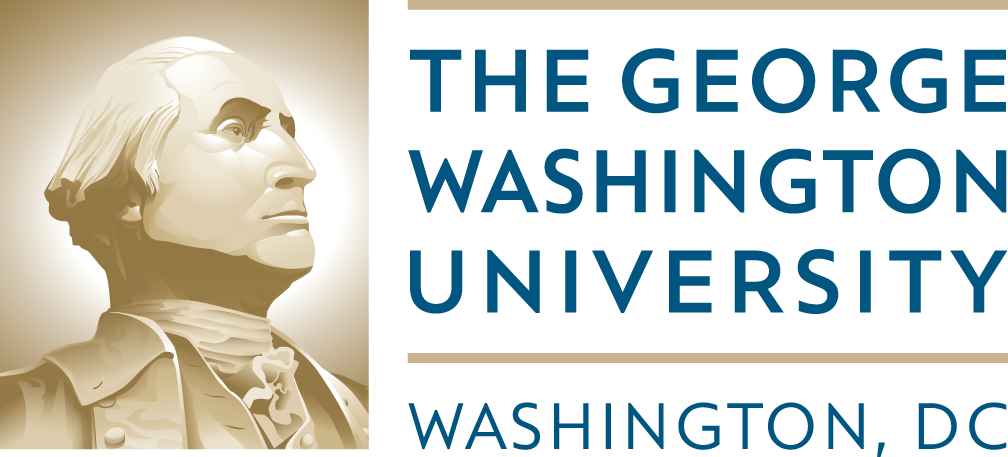
The George Washington Institution is a private research university in Washington, D.C. It was formed in response to George Washington, the nation’s first commander in chief ,’s for a national university in the nation’s capital.
The Master of Professional Studies in Publishing program at GW’s Alexandria Graduate Education Center is designed for present and aspiring professionals, including post-bachelor and post-graduate students with degrees in other disciplines.
Founded in 1821,
Ranked: 3rd
Tuition: $31,560 (approximately)
Acceptance rate: 40.8%
4. Pace University, New York:

Pace University is a private university with campuses in Manhattan, New York City, and Pleasantville and White Plains, Westchester County, New York.
Basically, Pace University’s graduate program in editing and publishing provides students with the skills they need to establish and sustain successful careers in the fast-paced publishing and interactive media sectors.
Founded in 1906
Ranked: 4th
Tuition: $78,000 (approximately)
Acceptance rate: 78.7%
Check this out: 10 Best Schools for Creative Writing in the World | 2024
5. The New School:

The New School is a private, non-profit research university based mostly in Greenwich Village in Manhattan, New York City, USA. This fast-paced and comprehensive immersion in the business of publishing is open to students in the department of publishing professionals, keen readers, aspiring writers, and entrepreneurs.
This school offers students the opportunity to acquire three graduate credits toward their degree program.
Founded in 1919
Ranked: 5th
Tuition: $16,224 (approximately)
Acceptance rate: 57.3%
6. Belmont University:
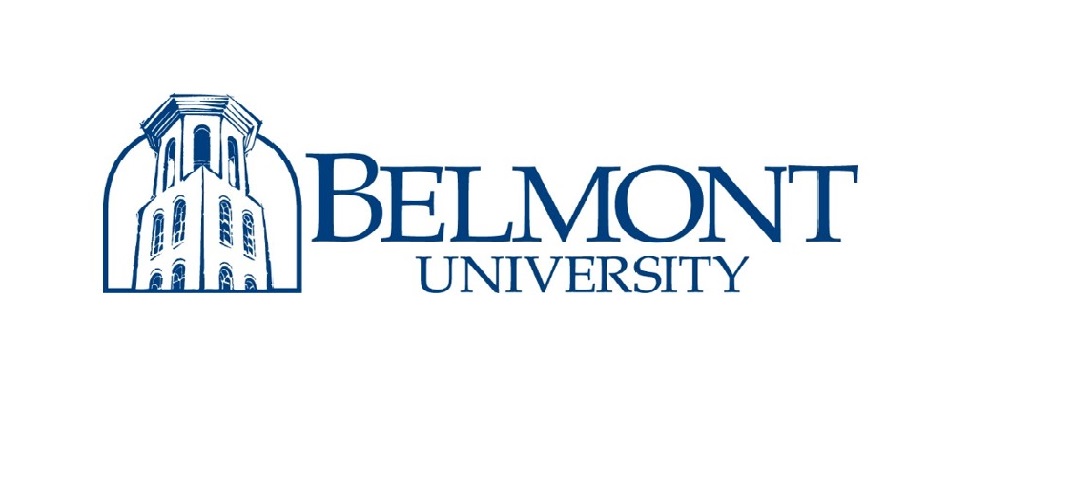
Belmont University is a Nashville, Tennessee-based private Christian liberal arts university.
The publishing program engages students in relevant courses and real-world experiences to equip them to become practitioners in this competitive sector of publishing.
Belmont University’s vision is to be a student-centered Christian community that empowers men and women of all backgrounds to engage and alter the world with disciplined intelligence, compassion, courage, and faith via an academically demanding education.
Founded in 1890
Ranked: 6th
Tuition: $35,650 (approximately)
Acceptance rate: 83%
7. Portland State University:

There are only one Publishing degree program at Portland State University. It’s a massive, public four-year university in the middle of a big metropolis. In 2019, 35 students graduated with master’s degrees from the Publishing program.
Founded in 1946
Ranked: 7th
Tuition: $9,579 (Local) and $28,410 (domestic)
Acceptance rate: 95.8%
8. Minnesota State University, Moorhead:

Minnesota State Institution Moorhead (MSU Moorhead) is a public four-year university in Moorhead, Minnesota. The Certificate in Publishing is a collaboration between the English Department and the School of Communication and Journalism at Minnesota State University Moorhead.
Its goal is to introduce students to the publishing industry through writing and editing experiences. Two publishing degree programs are available at Minnesota State University Moorhead.
Founded in 1888
Ranked: 8th
Tuition: $239.00 (approximately)
Acceptance rate: 62.7%
9. Susquehanna University:
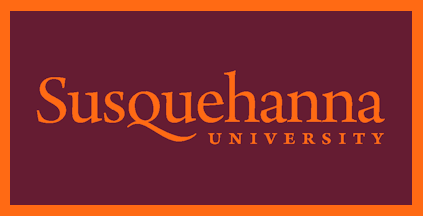
This is a four-year, coed, private liberal arts university located in Selinsgrove, Pennsylvania, United States.
The publishing and editing program at Susquehanna University is large enough for students to have access to a high-tech, dedicated lab and eight department student publications, yet small enough for students to receive hands-on, personalized attention from teachers.
Founded in 1858
Ranked: 9th
Tuition: $46,690 (approximately)
Acceptance rate: 72%
10. Hastings College:
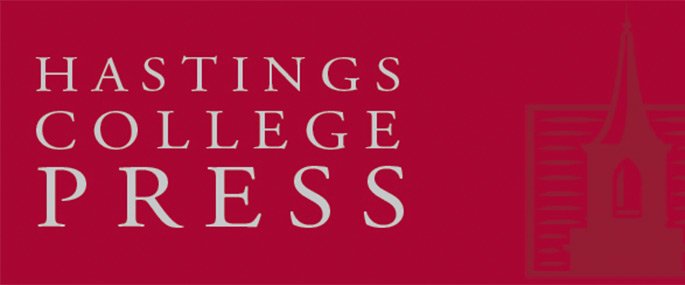
Hastings College is a residential liberal arts college in Hastings, Nebraska, that is affiliated with a church. Publishing and editing are offered as a major and a minor at Hastings College.
Technical skills and written communication classes are included in the program. Hastings College publishing majors put their classroom learning into reality at the Hastings College Press on campus and through internships across the country.
Founded in 1882
Ranked: 10th
Tuition: $27,800 (approximately)
Acceptance rate: 66.8%
CONCLUSION
Publishing is thriving and changing quickly, making it an appealing career choice for future professionals from a variety of backgrounds and interests.
FAQs- Best Colleges for Publishing and Editing
Best Colleges For Book Editors
Northwestern University Evanston, IL
Massachusetts Institute of Technology Cambridge, MA
New York University New York, NY
Harvard University Cambridge, MA
Publishing has no formal educational requirements, but most professionals have college degrees in fields such as English, literature, or journalism. Degrees that indicate specialized knowledge, such as chemistry or biology, can be useful to those who wish to go into textbook publishing or academic publishing positions.
REFERENCES– Best Colleges for Publishing and Editing
- study.com
- education.seattlepi.com
- chea.org
- careerexplorer.com
- universities.com
- quora.com
- onlinemaryville.edu



